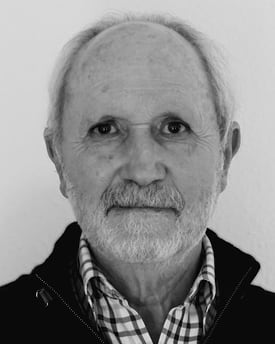
Carmelo Marcén Albero
Eco-social researcher and collaborator of Fundación Alternativas
It is hard to understand the high percentages of poverty and social exclusion suffered by children and adolescents in the rich, democratic and advanced Europe. It is frightening to think that after the elections to the European Parliament it could increase. We all know that the European right-wing and extreme right-wing parties do not have in their ideology the protection of the weakest and the reduction of social inequalities. If this happens, these children, including today’s adolescents, will carry with them the social oblivion they endured during the first stages of their lives. They are not responsible for this neglect; they suffer from the neglect and forgetfulness of others. Both of their political representatives and of the society that selects them in elections.
A few months ago we learned about the Unicef report The State of Children in the European Union. It denounced that many children in the EU are currently facing serious problems that will deteriorate their future lives, if not solved soon and completely. They suffer from high rates of poverty and social exclusion for too many years, endure a variety of mental health problems and accumulate environmental risks due to pollution. Poverty rates refer to the money their families can devote to the basic needs of children and adolescents (quality of food, comfort of housing, etc.), also whether they can access essential services such as full health care (having glasses or dental care if they need it) or quality education. Their mental health is impaired by too many episodes of distress, they do not enjoy a state of positive psychological, emotional and social well-being. Ongoing environmental risks are caused by various factors in their natural environment (including homes, schools and local areas, green spaces, etc.) and by wider issues such as the impacts of climate change. To all this should be added the lack of digital resources and, at the same time, the risks associated with their inappropriate use.
This qualitative assessment is complemented by data. The report states that one in four children in the European Union is at risk of poverty or social exclusion; that’s a total of 20 million. And that is a lot. It is a disgrace for the society in which they live. Even more so in Spain. Here there are more than two million (28% of the child and adolescent population).
More data that should induce an immediate approach by the administrations: there has been an increase of 1.6 million children since 2019 in the main poverty indicator in the EU, according to this year’s Unicef report. The truth is that some 11 million children in the EU suffer from mental health problems. This social neglect is even more serious in Spain, the EU country with the highest rate of child poverty. A little closer look reveals that adolescents are the most likely to suffer from mental health problems such as anxiety and depression, affecting a fifth of young Europeans aged 15 to 19.
It is not only Unicef that denounces the risks of forgetfulness. The social context has to be taken into account. The EAPN (European Anti Poverty Network) – an independent coalition of NGOs and other groups involved in the fight against poverty and social exclusion in the Member States of the European Union – has presented its advance results for general poverty in Spain. The AROPE (At Risk Of Poverty or Exclusion) indicator has increased slightly over the last year to 26.5% of the population. This is a huge percentage which in absolute terms alerts us to the fact that some 12.7 million people are in a situation of AROPE. What is even worse is that it is growing: last year it was 26%. This means, taking into account the increase in population, that some 400,000 new people are at risk of poverty and/or social exclusion in the last year. We are not going to expand much more on the figures, which can be consulted in the links provided. We can only say that the increase in the AROPE rate is based exclusively on the notable increase in severe material and social deprivation (PMSS). In this group, some 1.9 million people are not extremely poor and do not live in households with low employment intensity. However, they suffer from severe material and social deprivation. A tremendous x-ray of our society, a part of which will be hurt forever.
In the face of these forgetfulness, inattention and simply a lack of interest in looking in detail at inequalities, we would like to make a collective appeal for alliances so as not to further damage the social life of future generations. Our wish list would be addressed to governments, political parties, parliaments, a large part of the media and also to the judiciary. In Spain, these groups dedicate a large part of their political and organic time to shuffling papers accusing private privileges of public persons, which, although they need to be dismantled, seem trivial compared to the tragedy of being at risk of poverty in childhood and adolescence.
Other wishes that cannot wait to be fulfilled. Many people would be pleased if the public prosecutor’s office and the judiciary were to pursue ex officio these obscurities, laziness, breaches of government commitments, misdemeanours or crimes against Spaniards as a whole and, more specifically, against the most disadvantaged groups. Because Spain must comply with European and Spanish laws that recognise minors as subjects with full rights. It seems that inequalities do not concern the public authorities, or that they are overwhelmed by other tasks. We would like to know how many parliamentary plenary sessions are devoted in the Cortes or regional parliaments to immediately agree on the fight against poverty; in how many governments is there a ministry/department on Social Exclusion or to eliminate inequalities; are they accountable to citizens for their achievements or unfulfilled duties; what does the General Council of the Judiciary have to say on the matter; and what does the media have to say on the matter?
We would also love to see the media play an important role in this alliance for poverty, and for children in particular. They should be involved in highlighting the possible ethical ideas of the parties on these issues. If they talk about poverty, it is on an ad hoc basis. Moreover, they should counterbalance the social slights that the technological networks launch, which dull consciences with banal aspects.
One last question that is of great concern to us: will the European Parliament that has emerged after the elections be able to make it clear at long last that poverty and the risk of exclusion must come to an end in the democratic EU?
Enough is enough! We want politicians, judges, parties and the media to talk about the problems of children and adolescents, about the growing inequalities that many Spaniards can accumulate. These representatives of ours should read the coinciding reports of Unicef, Save the Children, Oxfam, Cáritas, etc. As well as the recommendation of this year’s Ombudsman which stressed: ‘Poverty must be tackled in such a way that it becomes a priority objective of the public authorities’. We would like to remind you that the human right to lead a dignified life is not begged for, it is incorporated at birth. A big thank you to those people who fight for universal social justice in these areas.
PS: A heartfelt reminder and a disturbing alarm about child poverty and the deaths caused to Palestinian children in Gaza and the West Bank, also in Lebanon. Will the international community be able to improve AROPE there, if it exists? Nor should it mean much in too many countries in Africa, Latin America or Asia. So we should rethink global coexistence, not just reduce it to a few figures or percentages.






